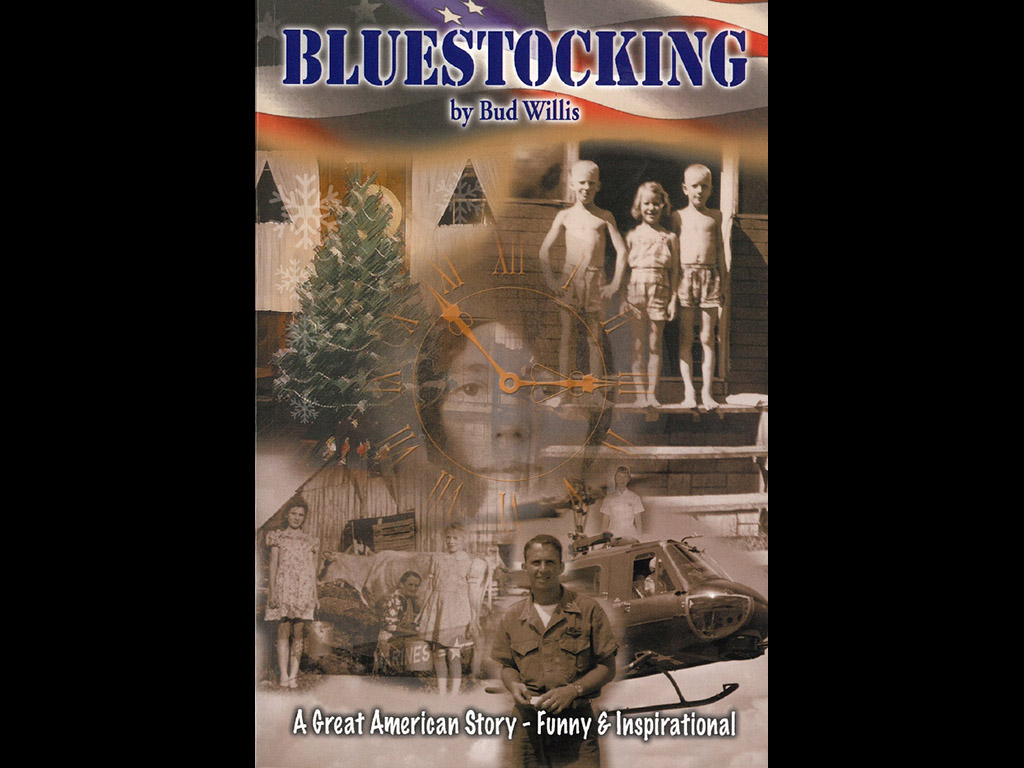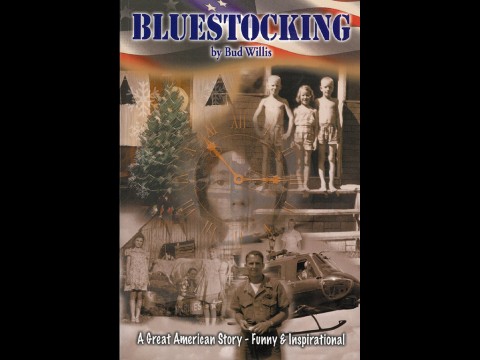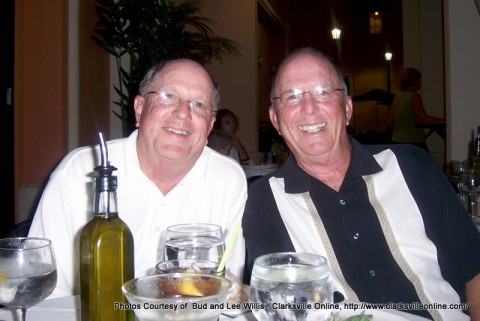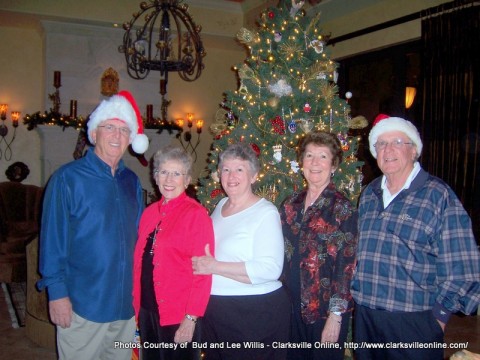 Clarksville, TN – There is a special kind of down-to-earth spirit that Tennesseans have that you don’t necessarily find in other parts of this country. Tennesseans aren’t about being uppity by bragging about how rich their family is or who has the biggest house.
Clarksville, TN – There is a special kind of down-to-earth spirit that Tennesseans have that you don’t necessarily find in other parts of this country. Tennesseans aren’t about being uppity by bragging about how rich their family is or who has the biggest house.
They are much more concerned about how you treat your neighbors and if you’re good to your own family. Tennesseans want you to tell it like it is without putting on airs.
Bud Willis is a Tennessee native whose life has taken many twists and turns. Growing up in a family of nine children, he eventually survived VietNam as a Huey helicopter pilot, was named Tennessee’s Outstanding Young Man, and became a partner in J.C. Bradford and Company, a securities firm. His second book, Marble Mountain, is a Vietnam memoir.When Bud sat down to write his first book, Bluestocking, he went back to his childhood and wrote the story of a Tennessee family headed by remarkable woman who mothered nine children and saw them grow to adulthood with the right values and a chance at success.

The title, Bluestocking, comes from the small community called “Bluestocking Hollow” (probably pronounced “holler” by most Tennesseans) where Bud’s mother, Margaret Louise Dryden, was born.
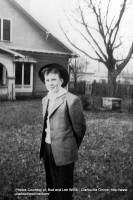
Margaret was married to Burr Willis on March 3rd, 1929. Their children, born from 1930 until 1947, were named Horace White, Martha, Virginia Ann, Tommy, Sara Marie, Beasley (also called “Buddy” or “Bud”), Paschal (“Tykie”), James Dryden (“Jimmy” or “Beau”), and Linda Gail. Bud divides them into three groups of three kids each: the Depression Era, the Fifties Era and the Boomers Era. Therein lies the tale.
Bud weaves a path through his family history, including that of his father’s famous cousin, John Harlan Willis, one of only eight Tennesseans to be awarded the Congressional Medal of Honor during World War II; John Harlan’s bravery at the Battle of Iwo Jima also won him a part in Tom Brokaw’s The Greatest Generation.
Bud tells all—the good, the bad, the hilarious, the sad. He tells about the night his father, who worked as a butcher, was ordered to leave the family home after his alcoholism had led to abuse of his wife and family—and the fact that they never saw him again.
Food assistance was available for those in need at the time and “we could have used all that free stuff, but there was not a chance in a million that my mother would have signed up or stood in the line for the hand out,” Bud insists.
Each child did his part to help out with the family fortunes while their mother had a full time job just taking care of nine children. She made meals with potatoes, pinto beans, powdered milk, bread and canned tomatoes—and a whole chicken when funds were available.
“Where most people would look into an empty pantry and see nothing but a half bag of rice, a few raisins and some corn meal, Mama pictured rice pudding and hot corn cakes.”
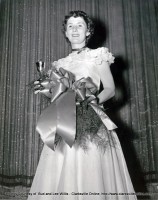
The triumphs like when Bud’s oldest sister (who had borrowed an evening gown from the wealthiest family in town) became Miss Tullahoma only to be followed the next year by his next oldest sister Ann are juxtaposed beside the shenanigans of his younger sister, Linda, who decided when it came her turn to parade before the judges at the Miss Tullahoma pageant to skip the high heeled shoes and wear her little red booties instead; she lost, of course.
Bud Willis has one infallible sense of humor. He flings hilarious incidents on you as a reader with unfailing regularity.
Take his mother’s yells of “Don’t throw it to Willis!” from the bleachers when Bud was one of the captains of the local football team. His mother had no idea what was happening on the football field but she had overheard some other spectators complain that Bud should have caught a previous pass so she immediately assumed that never sending the ball his way could prevent further criticism.
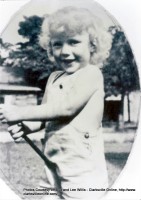
Or consider the day the well fell in. It was assumed since no one could locate Tykie, (who was about six years old at the time), that he must have fallen into the well. Pandemonium broke out as the police were called and a young neighbor tied himself in a rope to be lowered down to rescue Tykie. “…through the commotion we heard a small voice from behind us say, ‘Gollee! What’s going on?’ Tykie had casually walked up behind this cackling herd without being noticed, and completed the modern day parable of having risen from the well. He magically appeared from nowhere. It was biblical.”
The common sense of a single mother was shown in her curing Beau and Tykie of fighting. “Mother despised conflict, and early on when this occurred, she had a very effective solution. She simply locked them in a room and told them to fight until they were sick of fighting. When they begged to stop, Mother told them they didn’t look sick enough and closed the door. When the match finally ended, Beau and Tykie never had another serious fight,” remembers Bud. This was a much-told story within the family who saw that both boys received boxing gloves for Christmas that year.
Bud declares that the most important lesson in Southern families at the time was that you must always have on clean underwear in case you were in an accident. “Mama obsessed over our underwear a lot more than we did, as though we were always just one car wreck away from causing her almost certain embarrassment. But in our defense, I never once read in the Tullahoma News that a kid was in an accident, and his underwear was even mentioned.”

“Young Johnny Jones was injured today when he was struck by an automobile while trying to stand up on his bicycle seat. He was taken to the emergency room for examination, and his underwear did not pass inspection. His mother was arrested and taken in for questioning,” Bud imagined as a result of having been warned on numerous occasions concerning the state of his underwear.
As for corporal punishment, “Mama never laid a hand on me. The way she corrected her children was by saying something like, ‘Let’s make sure we never have to go through anything like that again.’” On the other hand, “the way she showed her love was by just being there.”
The story of this family and their adventures is curtained with Bud’s 15 minutes of fame when he appeared on the NBC TODAY Show on November 11, 2008. The reader who can live through this episode without shedding tears after hearing about an American hero who was picked up on his way to the hospital in Bud’s helicopter is not someone with a Tennessee heart.
Bluestocking is the story of ordinary people who face the challenges of life with courage, a sense of humor, and dignity. As a reader, you will grow as a person from reading this book—and you’ll be ready to say “thank you” to Bud Willis for sharing this classic tale with you.
If nothing else, you’ll find out why his Marine buddies called Bud “Boo Radley,” the name of a character in To Kill a Mockingbird!

